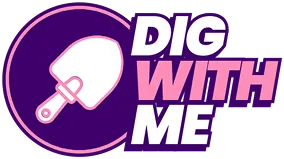Changing careers in midlife isn’t just possible, it can be the key to greater fulfillment, financial stability, and personal growth! Whether driven by burnout, shifting interests, or the desire for a fresh challenge, transitioning to a new industry requires strategy and confidence. With the right mindset, transferable skills, and a solid plan, a midlife career pivot can lead to exciting new opportunities. Reinvention isn’t about starting over, it’s about building on experience to create a more rewarding future.
Identifying Transferable Skills and Strengths
A midlife career change doesn’t mean starting from scratch—many skills gained over the years can be valuable in a new industry. Leadership, problem-solving, communication, and project management are just a few transferable skills that apply across multiple fields. Taking stock of past experiences and identifying strengths helps create a foundation for a successful transition. Recognizing these abilities makes it easier to position oneself as a strong candidate, even without direct experience in the new field.
Beyond professional skills, life experiences also play a crucial role. Adaptability, resilience, and the ability to learn quickly are all assets that employers value. Making a list of both hard and soft skills can reveal unexpected connections between past roles and future opportunities, making the transition smoother and more strategic.
Exploring Industries and Career Paths That Align With Your Goals
Before making a leap, it’s essential to research industries that match personal and professional goals. Some careers require formal education or certifications, while others prioritize experience and transferable skills. Fields like technology, healthcare, education, and entrepreneurship offer opportunities for career changers looking to enter high-demand industries.
Networking with professionals in the target industry provides valuable insights into job expectations and work culture. Conducting informational interviews, attending industry events, and joining online communities can help clarify whether a particular career path is the right fit. Taking the time to explore options ensures that the next move leads to long-term satisfaction and success.
Upskilling and Gaining Relevant Experience
Even with strong transferable skills, some career changes require learning new tools or technologies. Online courses, certifications, and workshops can help bridge knowledge gaps and increase credibility in a new industry. Platforms like Coursera, LinkedIn Learning, and Udemy offer flexible learning options that fit busy schedules.
Gaining hands-on experience through freelance work, internships, or volunteer opportunities can also help ease the transition. Many companies value practical experience over formal education, making it beneficial to work on small projects, contribute to open-source initiatives, or assist in relevant community programs. Taking proactive steps to build expertise demonstrates commitment and enhances employability.
Networking and Leveraging Professional Connections
A strong professional network can open doors to new career opportunities. Reaching out to former colleagues, mentors, and industry professionals can lead to valuable referrals and job leads. Engaging on LinkedIn, attending networking events, and joining industry-specific groups can help establish new connections in the desired field.
Many midlife career changers find success through informational interviews, where they learn from professionals already working in their target industry. These conversations provide insights into job expectations, company cultures, and potential challenges. Leveraging existing and new connections can accelerate the job search process and provide crucial support during the transition.
Overcoming Challenges and Staying Resilient
Switching careers later in life comes with unique challenges, including self-doubt, financial concerns, and industry competition. Some employers may hesitate to hire candidates without direct experience, but confidence and persistence can make all the difference. Highlighting adaptability, past successes, and a strong work ethic helps overcome potential objections.
Rejection is part of any job search, but resilience is key. Viewing setbacks as learning experiences rather than failures keeps motivation high. Surrounding oneself with a support system—mentors, career coaches, and peers—can provide guidance and encouragement. A successful career pivot is built on patience, strategic planning, and a commitment to lifelong learning.
Embracing Change as a Path to Growth
A midlife career change isn’t just about finding a new job—it’s about aligning work with personal values, interests, and long-term goals. Embracing the journey with an open mind and a willingness to learn creates new possibilities and fresh opportunities. With persistence, adaptability, and a proactive approach, a career pivot can lead to greater fulfillment, financial success, and renewed purpose.

